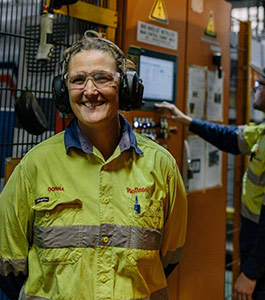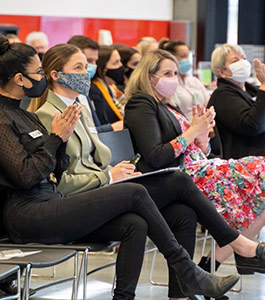
Providing support for young apprentices is paramount to ensuring they have mentally healthy experiences in the workplace.
There are various ways in which to ensure your apprentices have support structures in place, such as appropriate induction processes and thorough analysis and practical application of policies & procedures in the workplace. Another support mechanism and the one we are going to focus on in this article, is mentoring. This framework plays an important role in facilitating an environment that provokes job satisfaction and healthy support networks, through a culture in which mentees (apprentices) are encouraged to ask questions and seek support when they make a mistake or are unsure of how to navigate different aspects of the workplace.
Research has shown that just over 1 in 4 Australian’s aged 15-24 will experience a mental health disorder in their lifetime and as they age, this risk increases. How does this tie into the workforce? Well, young workers are also more at risk of being exposed to mental health hazards at work, such as bullying, fatigue, occupational violence/aggression, and work-related gendered violence, including sexual harassment. This means young apprentices are more vulnerable to negative mental health and wellbeing experiences in the workplace if adequate support isn’t provided.
Mentoring is one way of ensuring your organisation’s young workers have support structures in place to help them develop the necessary skills and attributes to be successful in their chosen fields and in turn, have mentally healthy experiences in the workplace. Providing apprentices with mentors that role model and exemplify behaviour consistent with the values and policies of the organisation, will also ensure there is a cultural and behavioural standard set for the apprentices to learn from.
Please access this resource to see how you can engage in effective mentoring and support the mental health and wellbeing of your young apprentices in the workplace.
References
Mission Australia in association with Black Dog Institute, Youth mental health report: Youth survey 2012-16, <https://www.blackdoginstitute.org.au/wp-content/uploads/2020/04/2017-youth-mental-health-report_mission-australia-and-black-dog-institute.pdf?sfvrsn=6>, accessed 4 October 2021.
Australian Bureau of Statistics, Mental health, 12 December 2018, <https://www.abs.gov.au/statistics/health/mental-health/mental-health/2017-18>, accessed 4 October 2021.
WorkSafe Victoria, Young Workers: Mental Health, 24 March 2021, <https://www.worksafe.vic.gov.au/young-workers-mental-health>, accessed 4 October 2021.





